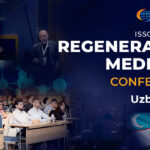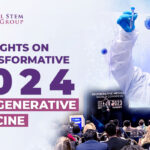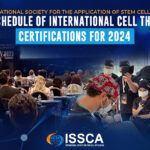Healing damaged lungs with stem cells.
A New study published by scientists from the Weizmann Institute of Science suggests that stem cells may be used for repairing damaged lung tissue. This discovery gives new hope for treating conditions like bronchitis, asthma, cystic fibrosis or emphysema, which affect more than 35 million Americans and are the second leading cause of death worldwide.
[su_spacer]
Bone Marrow stem cells able to generate new lung tissue
The treatment method proposed by scientists at the Weizmann Institute is based on the similarities between stem cells that reside in the lungs and those in bone marrow. Bone marrow stem cells, when transplanted to a patient, manage to find their way through the blood and to navigate to the designated area where they differentiate.
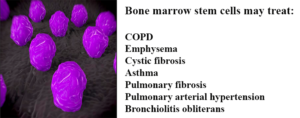 Acknowledging the similarities between lung and bone marrow stem cells, Professor Yair Reisner of the Immunology Department of the Weizmann Institute tested the ability of lung stem cells to travel to a specific region after transplantation in mice [1]. Before introducing the bone marrow stem cells into mouse models with lung damage, the group of scientists cleared the lungs’ stem cell compartments to clear a path for the transplanted cells.
Acknowledging the similarities between lung and bone marrow stem cells, Professor Yair Reisner of the Immunology Department of the Weizmann Institute tested the ability of lung stem cells to travel to a specific region after transplantation in mice [1]. Before introducing the bone marrow stem cells into mouse models with lung damage, the group of scientists cleared the lungs’ stem cell compartments to clear a path for the transplanted cells.
The injected stem cells managed to reach the empty lung compartments and settle in the lungs, where they differentiated into normal lung tissue,six weeks after transplantation. Results showed that new lung cells continued to be created from the transplanted stem cells 16 weeks after the implantation, ultimately healing the damaged lungs and improving their breathing ability.
The Weizman scientists intend to continue their research by exploring this option further, and possibly create a bank of lung stem cells that can provide cells ready to be transplanted to patients with severe respiratory diseases.
Lung-specific induced pluripotent stem cells (iPSCs)— potential alternative to bone marrow stem cells
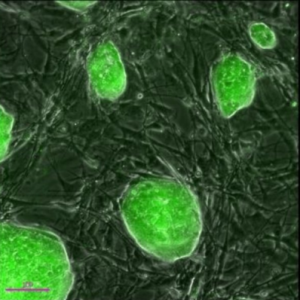
Darrell Kotton, the study’s lead author, highlighted the fact that iPSCs are easier to cultivate in lab conditions than bone marrow stem cells, and are genetically identical to the patient’s cells, so the risk of rejection in such transplants is eliminated. The lung-specific iPSCs obtained by manipulating adult stem cells into a primitive stem cell state could solve some of the hurdles impacting other kinds of stem cell research.
In this study, scientists used skin stem cells manipulated into primitive pluripotent stem cells, with results showing that the iPSCs have the ability to multiply and differentiate into endoderm tissue–the natural precursor of lung cells [2].
References:
- Chava Rosen, Elias Shezen, Anna Aronovich, Yael Zlotnikov Klionsky et al. – Preconditioning allows engraftment of mouse and human embryonic lung cells, enabling lung repair in mice, Nature Medicine, 2015, http://www.nature.com/nm/journal/vaop/ncurrent/full/nm.3889.html
- Aba Somers, Jyh-Chang Jean, Cesar A. Sommer, Amel Omari et al. – Generation of transgene-free lung disease-specific human induced pluripotent stem cells using a single excisable lentiviral stem cell cassette, Stem Cells, 2010, 28 (10):1728, http://onlinelibrary.wiley.com/doi/10.1002/stem.495/full


